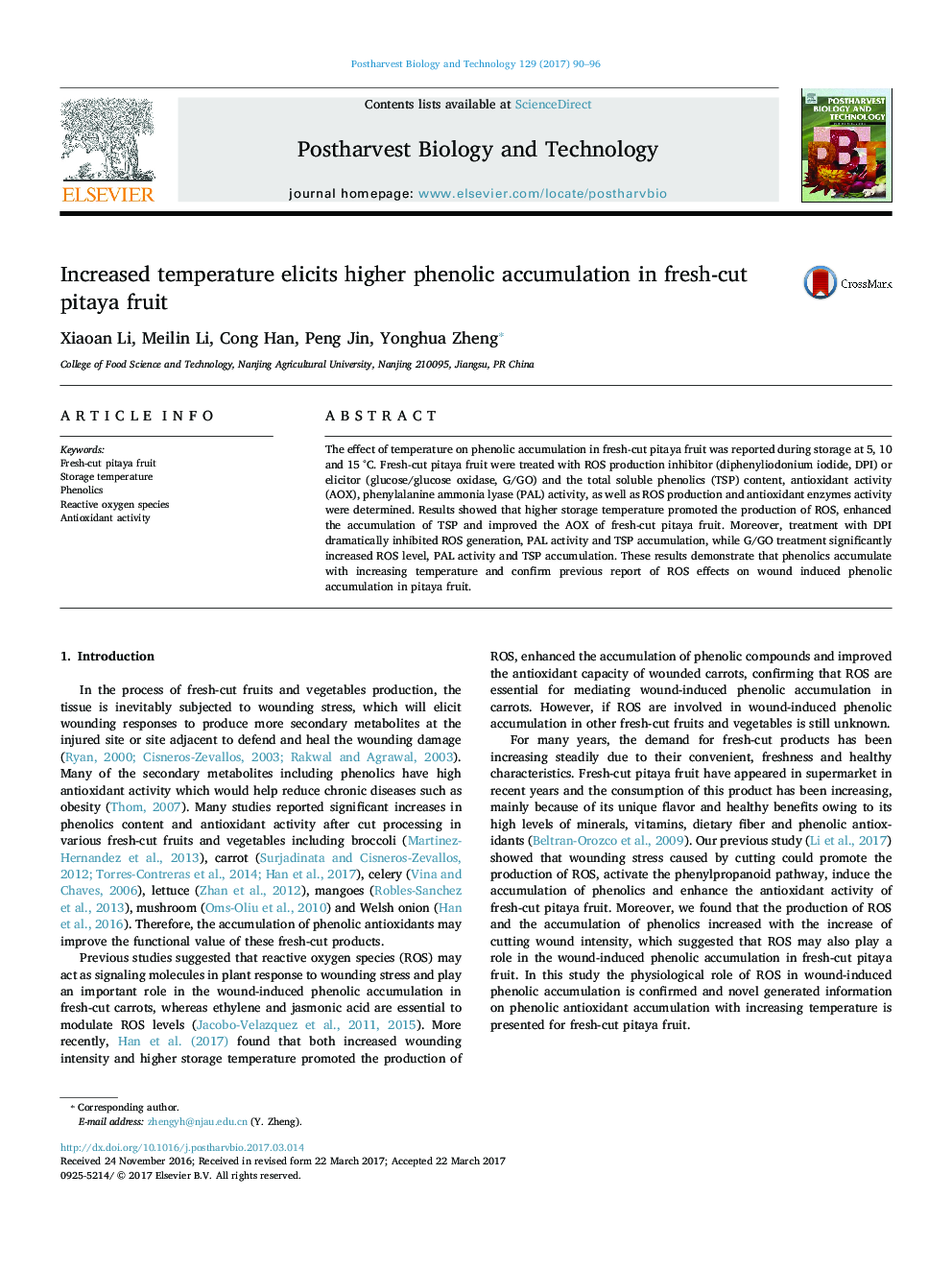| Article ID | Journal | Published Year | Pages | File Type |
|---|---|---|---|---|
| 5762715 | Postharvest Biology and Technology | 2017 | 7 Pages |
Abstract
The effect of temperature on phenolic accumulation in fresh-cut pitaya fruit was reported during storage at 5, 10 and 15 °C. Fresh-cut pitaya fruit were treated with ROS production inhibitor (diphenyliodonium iodide, DPI) or elicitor (glucose/glucose oxidase, G/GO) and the total soluble phenolics (TSP) content, antioxidant activity (AOX), phenylalanine ammonia lyase (PAL) activity, as well as ROS production and antioxidant enzymes activity were determined. Results showed that higher storage temperature promoted the production of ROS, enhanced the accumulation of TSP and improved the AOX of fresh-cut pitaya fruit. Moreover, treatment with DPI dramatically inhibited ROS generation, PAL activity and TSP accumulation, while G/GO treatment significantly increased ROS level, PAL activity and TSP accumulation. These results demonstrate that phenolics accumulate with increasing temperature and confirm previous report of ROS effects on wound induced phenolic accumulation in pitaya fruit.
Related Topics
Life Sciences
Agricultural and Biological Sciences
Agronomy and Crop Science
Authors
Xiaoan Li, Meilin Li, Cong Han, Peng Jin, Yonghua Zheng,
